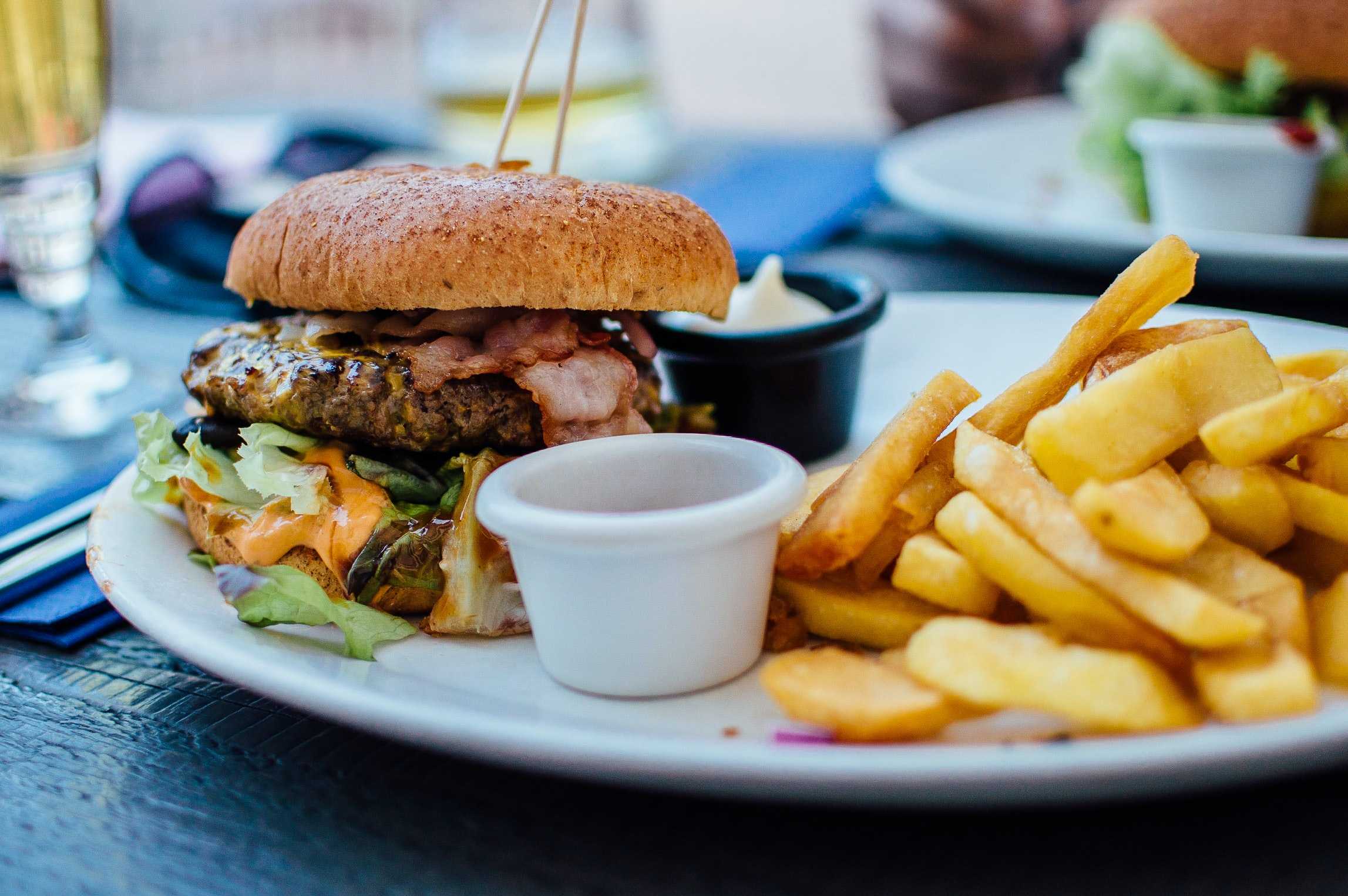
[ad_1]
The immune system is one of the most important parts of our bodies. It’s responsible for protecting us from external and internal threats. But what happens when you put something into your body that undermines it? How does our body suffer when fed the worst food combinations? If you’re wondering, “What’s the worst food ingredient for the immune system?” you’ve come to the right place. Continue reading to find out.
Food to avoid for healthy immune system –
Here are the worst foods that you should avoid for a better and improved immune system:
- Processed foods
- Refined carbohydrates
- Refined oils and fats
- GM seeds (genetically modified)
Your immune system is what keeps you healthy. It’s responsible for fighting off viruses, bacteria, and other invaders that could otherwise cause you harm. In this article, we’ll take you through a detailed list of the worst foods for the immune system—and what they can do to your health if you consume them regularly.
Which are the worst food ingredients for your immune system?
What’s the worst food ingredient for your immune system? We’re glad you asked!
- The answer, of course, is… Sugar.
Just kidding! The answer is wheat. Wheat is one of the worst food ingredients for your immune system because it can negatively impact the health of our white blood cells. White blood cells are what fight off foreign invaders like bacteria and viruses, so when they’re not doing their job properly, we can get sicker than if we didn’t have a healthy immune system in the first place.
Do you know what’s even worse than wheat? It’s refined wheat. Refined wheat is bad for your health because it has been heavily processed, which means the nutrients are gone. This is why we only offer organic whole wheat flour in our products. The problem with refined wheat is that it contains a high amount of bacteria—bacteria that can cause problems for your health. These bacteria come from refining wheat products through processing methods such as milling or baking. The bacteria in the refined wheat act as an irritant to your digestive system and lead to many diseases, including constipation and diarrhea.
So next time you’re eating something that doesn’t taste very good—like a bagel or slice of bread—remember: If it doesn’t look good on your plate, it probably doesn’t taste any better in your body!
Also read: Kumkumadi Oil: Benefits, Tips To Use, Constituents, and Side Effects
- Second up? You guessed it right this time. It’s sugar.
Sugar is not good for you—even if you don’t have a specific medical condition. Sugar is the worst food ingredient for the immune system. It can cause problems for your body and its ability to function properly. It can lead to elevated blood sugar levels and diabetes, leading to other health issues like heart disease and stroke. And because sugar makes us feel more satisfied than our bodies need (which makes us eat more), it contributes to weight gain and obesity.
- Next on our list? Artificial sweeteners.
Artificial sweeteners like aspartame, saccharine, sucralose, neotame, and others pose more threats than sugar. These chemical compounds are used in many popular foods because they don’t have calories yet still taste sweet enough to make people crave them! This is because artificial sweeteners have not been developed by nature, so they don’t fit in with your body’s natural systems. This causes many problems in the immune system and can lead to several diseases. There are also many adverse effects related to artificial sweeteners, like increased heart problems. Overconsumption of artificial sweeteners can cause heart strokes.
- Processed food loaded with artificial preservatives.
Artificial preservatives are bad for your immune system. Artificial preservatives, such as BHA, BHT, and artificial colors like Yellow No. 5, can cause several problems for the body. First of all, they can affect the liver. This is not because they are toxic to the liver but because they interfere with its workings. One consequence of this interference is that some of the nutrients that are needed by your body are not absorbed properly. Second, they can affect your brain development. This happens because these chemicals change brain chemistry which may harm young children who eat food containing them regularly. Thirdly, they can cause allergies – especially in infants who are prone to developing food allergies later on in life due to cross-reactivity between foods or other chemicals found in common household items like cleaners or cosmetics
- Ever heard of emulsifiers? They are bad.
Emulsifiers are ingredients that mess up the gut! Our gut, referred to as the gastrointestinal (GI) system, is the powerhouse of all microbial action in the body. Our gut manages good bacteria in the body and helps remove unhealthy bacteria from the system. Emulsifiers damage the ability of the gut to distinguish between the good and bad bacteria in the digestive system. As a result, there is a build-up of bad bacteria, resulting in stomach inflammation and other infections. Consumption of emulsifiers can also cause inflammation. Possible risks associated with this include diabetes, liver damage, kidney problems, and heart problems.
- It might be something quite unexpected, but …Coldwater.
We can all agree that water is the “holy grail” of all ingredients found on the earth. It is the foundation of life. Its benefits are endless. However, our body loses its normal temperature when we consume cold water. The body transcends into a state of cold water immersion and is subjected to short-term cold stress. Cold stress may damage the good microbes present in the body, which forms the body’s natural defense mechanism. It can affect the immune system, thus affecting the metabolism of the body. Although there are no risks associated with drinking cold water, one must still refrain from drinking it as it can cause sickness in the body due to its poor immune system.
When it comes to food, what you eat can be as important as what you don’t eat. After all, if the wrong kind of food compromises your immune system, you could be at risk for a host of health problems. Now that we’ve covered the worst foods, what are the best foods for your immune system?
Which are the best immune boosting foods to add to your diet?
The best food for your immune system is filled with natural ingredients, like fruits and vegetables. But if you’re not a fan of how these foods taste, you can make healthy smoothies. When you’re feeling under the weather, you might want to eat foods that will help your immune system. We’ve also created this list of the best foods for your immune system.
Here are seven of our favorites:
- Eggs: Eggs are one of the most nutritious foods on earth, and they’re also packed with omega-3 fatty acids, which boost your immune system (and keep it healthy!)
- Avocados: Avocados are packed with vitamins B6 and E, which contribute to stronger immunity and a healthier body.
- Kale: Kale is an antioxidant powerhouse that can help improve your health and boost your immune system. It’s also super easy to grow at home!
- Spinach: Spinach is an excellent source of vitamins A, C, and K, which are all essential for maintaining a strong immune system—and it’s also great for reducing inflammation in the body!
- Pine Nuts: Pine nuts provide a wealth of nutrients, including vitamin E, zinc, and selenium—all of which help improve immunity!
- Dark chocolates: Dark chocolate is also rich in magnesium, iron, and manganese, which help restore damaged cells, repair DNA damage and support the production of antibodies.
- Red bell peppers: Red bell peppers are a good source of vitamin C, which helps to keep your immune system strong and healthy. They are also anti-inflammatory and contain flavonoids, called anthocyanins which act as antioxidants.
Conclusion:
The immune system is incredibly complex. It has many different parts, and each part is responsible for a specific function. The immune system defends the body against bacteria, viruses, and other invaders by producing proteins called antibodies that target these pathogens and destroy them.
The immune system is always active—in fact, it’s always working to maintain the health of your body! Every cell in your body has a corresponding antigen receptor (a protein on the surface of a cell that recognizes antigens) that helps keep everything in balance by recognizing foreign substances like bacteria or viruses and destroying them before they can cause harm.
But sometimes, these antibodies don’t work as quickly as they should or don’t get to their target quickly enough, leaving you vulnerable to illness. This is why it’s so important to eat foods high in nutrients like vitamins C and E; certain phytonutrients (plant nutrients); antioxidants; minerals; omega-3 fatty acids; probiotics (live bacteria); prebiotics (food for probiotics); anti-inflammatory foods such as berries; and fermented foods such as yogurt or kombucha tea — all of which help keep your immune system strong!
[ad_2]
Source link





No comment yet, add your voice below!